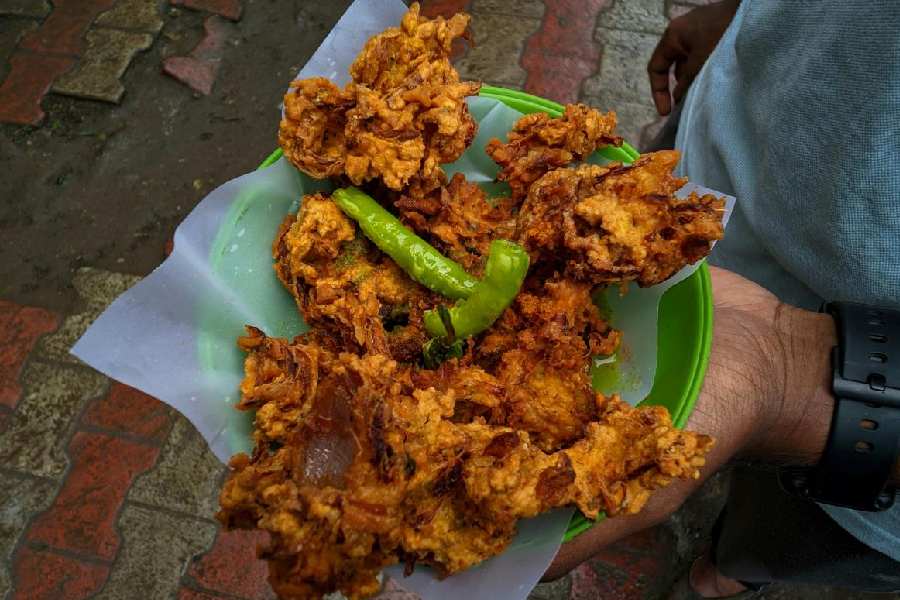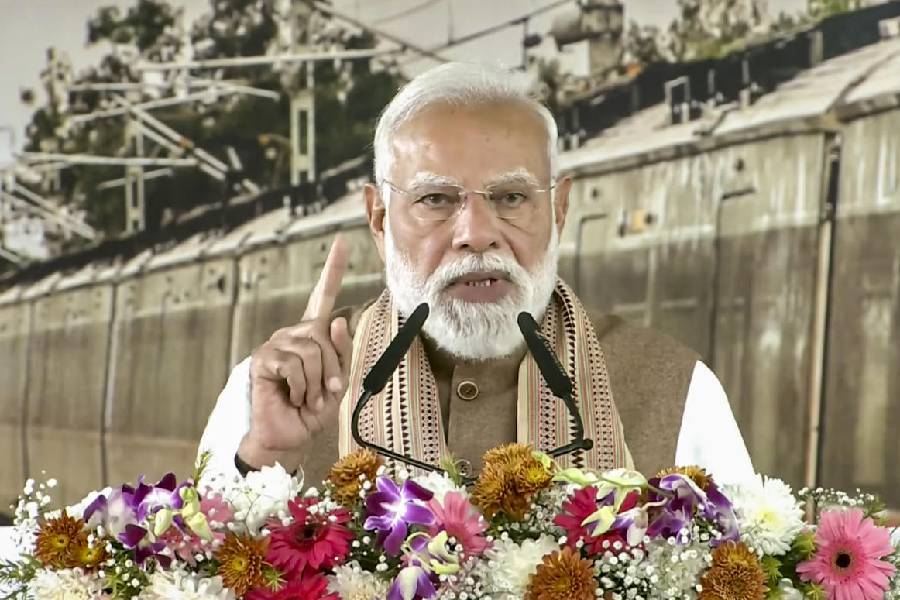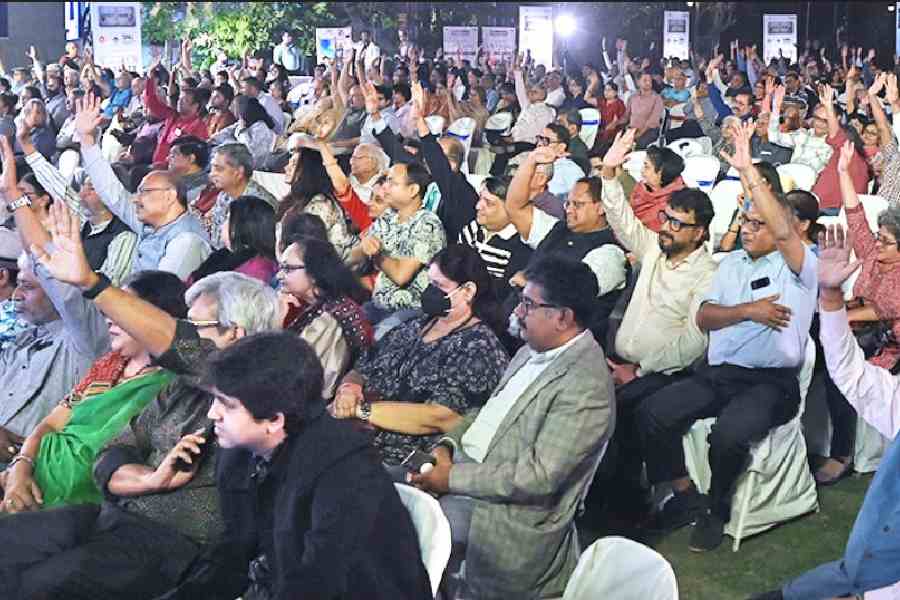Too tempting
Sir — Talk about having one’s cake and eating it too. A protester at a far-Right march in London was filmed buying onion bhaji while proudly draped in the St George’s Cross. The scene was striking, considering the day’s rallying cry of “We want our country back.” Evidently, the Briton’s idea of ‘his country’ includes onion fritters with chickpea flour and cumin. He is not so different then from the Indians who attend political rallies in India only to eat aloo’r chop and muri afterwards. At least, the palate of those on the far-Right appears to be more open-minded than their politics.
Kamal Laddha,
Bengaluru
Stay united
Sir — The assassination of Charlie Kirk is both a personal tragedy and a political warning. A society that tolerates political violence undermines democracy itself. Leaders who instantly blame their rivals without evidence risk inflaming tensions further. The loss of a father, activist, and public figure should be a moment for reflection, not an excuse for partisan score-settling. Political disagreements must be addressed through speech and debate, never through force. The United States of America needs restraint from its leaders and respect for democratic norms from all sides.
P. Victor Selvaraj,
Tirunelveli, Tamil Nadu
Sir — The killing of Charlie Kirk exposes a deeper crisis in America: ordinary citizens in that country are increasingly willing to see violence as a political tool. That is a dangerous development in a country awash with firearms. When influential figures speak recklessly about vengeance, they normalise the unthinkable. Leadership in such moments requires cooling tempers, not stoking them. History shows that republics collapse when violence becomes routine. If the US cannot restore faith in dialogue, then democracy itself will be in jeopardy.
Arun Kumar Baksi,
Calcutta
Sir — The problem with the assassination of Charlie Kirk lies not only in political violence but also in how leaders respond to it. Immediate blame of “radical left” or “radical right” is both inaccurate and inflammatory. Victims across the political spectrum deserve acknowledgement without selective omission. By excusing violence when it suits their side, politicians corrode the standards that protect everyone. Responsible leadership would condemn attacks unequivocally, offer comfort to families, and call for unity.
Ajay Tyagi,
Mumbai
Sir — Charlie Kirk’s death has become a prism for America’s divisions. Some now cast him as a martyr, while others highlight his history of offensive remarks. Both impulses distract from the essential issue: political murder must never be legitimised. When violence dictates which voices are heard, public life becomes narrower, harsher, and more fearful. A democracy cannot function if its citizens hesitate to speak or organise.
Vinay Asawa,
Howrah
Sir — Political violence in the US is rising against a backdrop of misinformation, polarised rhetoric, and an endless supply of guns. This creates a volatile environment where extremists feel emboldened. Social media accelerates the cycle, amplifying outrage before facts are known. In such a climate, measured responses are easily drowned out by fury. Leaders must insist that differences be contested peacefully. Without that, the erosion of trust in democratic institutions will only accelerate, leaving citizens more fearful and divided.
Kirti Wadhawan,
Kanpur
Sir — The assassination of Charlie Kirk is not an isolated tragedy. It sits within a pattern of growing threats to politicians, activists, and journalists. Each act of violence silences not just one person but intimidates many others who might speak or serve. That chilling effect benefits only the most extreme voices. This is the moment for leaders across divides to demonstrate maturity, call for tolerance, and recommit to non-violence. Failing that, the public sphere will shrink further, and the democratic promise of America will diminish.
N. Mahadevan,
Chennai
Important role
Sir — The vice-president of India holds an office that is often undervalued (“Bridge of reflection”, Sept 14). It is not merely a waiting room for the presidency but a constitutional trust in its own right. The role of presiding over the Rajya Sabha demands fairness, restraint, and respect for democratic procedure. When impartiality is visible and consistent, it strengthens the institution itself. Personal ambition may be natural but the office requires a different ambition: to leave behind a tradition of credibility and calm authority for others to follow.
Manoj Parashar,
Mumbai
Sir — The new vice-president of India inherits both a privilege and a burden. The privilege is the constitutional mandate to preside over the upper House with dignity. The burden is the expectation that this authority be exercised without favour or fear. Members of Parliament will test impartiality, especially in times of division.
A.K. Sen,
Calcutta










